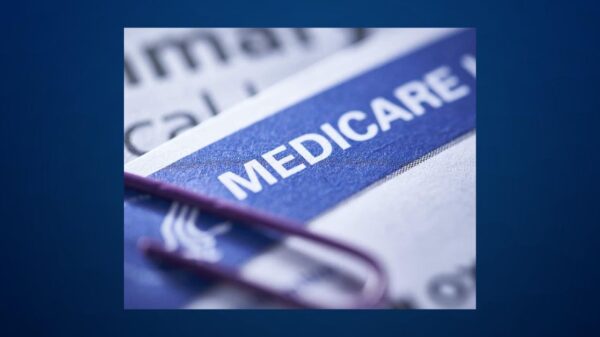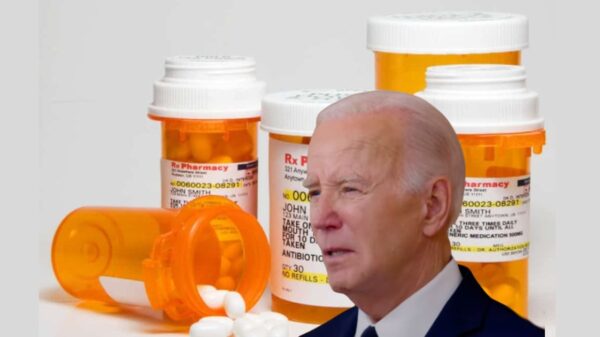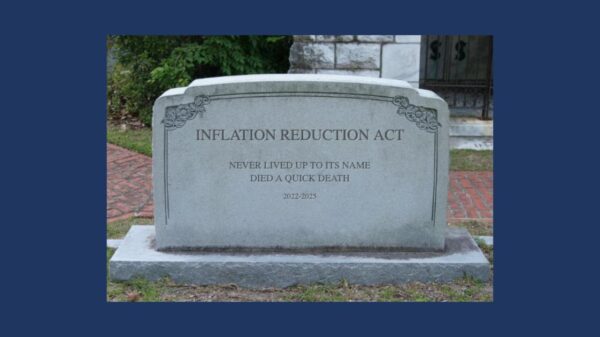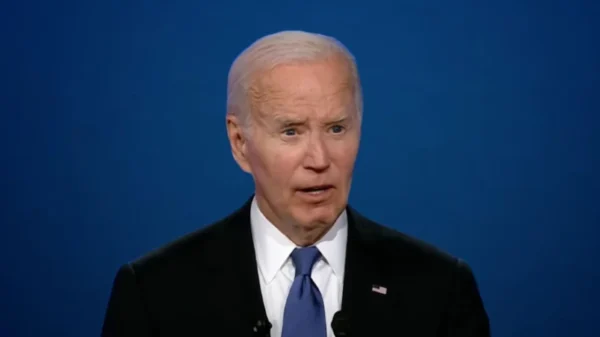Before Nick Saban settled on becoming a football coach, he had visions of owning a car dealership. As owner, Saban’s plan was to not have sales quotas. He felt, and feels, results-based leadership is a flawed way of achieving success. Instead, Saban aims for constant improvement every minute of every day.
As readers surely know, Saban went the football route. And in going that route, Saban has always de-emphasized a results-based, “national championship or bust,” approach. This most exacting of individuals believes success isn’t born of long-term results as much as daily improvement. That’s why he can be seen ranting amid blowouts. To him, the best way to improve is to pursue perfection with every play.
Politicians and pundits could learn so much from Saban. Their frequently negative rhetoric is rooted in what they imagine will be the harmful results of a bad policy, as opposed to the real problem: usually the policy itself. To see why, consider President Biden’s aim to erase student loan debt.
About Biden’s debt-forgiveness yearnings, if we ignore that his proposal is likely unconstitutional (Congress holds the power of the purse), the main thing is that debt forgiveness is wrong. Those who took on debt were able to spend money only insofar as others had less to spend. The debt shouldn’t be forgiven, period. Again, others paid more than they wanted to in taxes so that others could go to college. The money is owed, so pay it. Forgiveness is immoral.
Better yet, results be damned. Those critical of Biden’s policy aim act as though debt forgiveness would be alright absent what they imagine are the policy’s externalities. No, it’s immoral to relieve individuals of their obligations on the backs of others.
Worse, conservative analysis of debt forgiveness and its externalities is just plain wrong. In other words, conservative criticism of a very bad Biden policy proposal doesn’t stand up to basic logic. Consider the most commonly bruited one: debt forgiveness will “stoke inflation” thanks to Biden essentially lining the pockets of former college students with hundreds of billions, or perhaps trillions of dollars. As the Wall Street Journal’s Kimberley Strassel put it, “Every $20,000 of loan forgiveness is $20,000 the favored college forgiven can blow on urban loft refits or Hawaiian vacations.” Then to allegedly bolster her inflation argument, she cites often wrong, never in doubt Lefty economist Jason Furman’s line about forgiveness amounting to “Pouring roughly half [a] trillion dollars of gasoline on the inflationary fire…”
Up front, government spending, like debt forgiveness, is on its own the problem. Government spending is a tax, it’s the extraction of precious resources always and everywhere produced in the private sector by politicians who then allocate those resources in politicized fashion. Strassel should be against government spending because it’s an economically burdensome taking of freedom, not because it allegedly results in inflation. Furthermore, it doesn’t cause inflation.
Indeed, how interesting that in 2022 conservatives have happened upon government waste as an inflation accelerant! It’s interesting mainly because spending soared under Presidents Bush (W.), and Trump, but Strassel et al never lamented the alleged inflationary implications of same. With good reason. Their modern presumption that it fosters “excess demand” is utter nonsense. All demand begins with supply. Government isn’t some other. For government to hand out “demand,” someone must have less of it. For government to forgive loan payments, others, elsewhere are getting by with less. If we ignore that rising demand isn’t inflation to begin with, for conservatives to pretend that government can boost demand is for them to embrace the Keynesian multiplier that they spent decades ridiculing.
From there, conservatives claim that debt forgiveness is the plumber bailing out the college-degreed, that it’s reverse-Robin Hood, etc. etc. Lefty Washington Post columnist Catherine Rampell has joined them in promoting this narrative with her claim that loan forgiveness is “trickle-down economics” Biden edition, whereby a policy that will supposedly line the pockets of the degreed and well-to-do will somehow flow to the little guy. But Rampell is a digression. That is so because conservatives have for the longest time claimed (correctly) that the top 1 and 5% account for the vast majority of federal tax collections. If this is true, and it is, the reality is that Biden’s immoral, unconstitutional policy proposal would actually be about the very well-to-do bailing out the well-to-do. Paraphrasing former Obama administration big-wig Rahm Emmanuel, it seems conservatives are intent on never letting a chance to pander go to waste.
Of course, it doesn’t stop there. Think about it. With Biden’s highly immoral act, they want to have it all ways. While claiming kinship with innocent firefighters, plumbers, and (insert your other more noble profession here) out of one side of the mouth, out of the other they’re claiming that those bailed out need the forgiveness because they’re not doing anything of professional worth. As one prominent conservative editorial put it, “Colleges have no financial incentive to ensure that their programs impart skills demanded by employers or provide a decent living. What does it matter to them if an anthropology graduate winds up working as a barista?” Ok, so which is it? Is the immoral loan forgiveness bailing out high earners, or is it aiding those scratching out a meager living at Starbucks? To conservatives, it seems the answer changes depending on the circumstance. Something about not letting a chance to pander to go to waste.
Here lies the problem with results-based punditry, as opposed to that which focuses on what matters. If we ignore that federal student loans are at least on paper unconstitutional, if we ignore that forgiveness of them is President Biden moving well beyond his enumerated powers, the simple truth is that it’s once again just plain wrong to excuse the errors of some individuals on the backs of others. After which, it’s harmful to those bailed out. As Saban has pointed out, “you never want to waste a failing.”
John Tamny is editor of RealClearMarkets where this piece first appeared, Vice President at FreedomWorks, a senior fellow at the Market Institute, and a senior economic adviser to Applied Finance Advisors (www.appliedfinance.com). His most recent book is When Politicians Panicked: The New Coronavirus, Expert Opinion, and a Tragic Lapse of Reason.






















